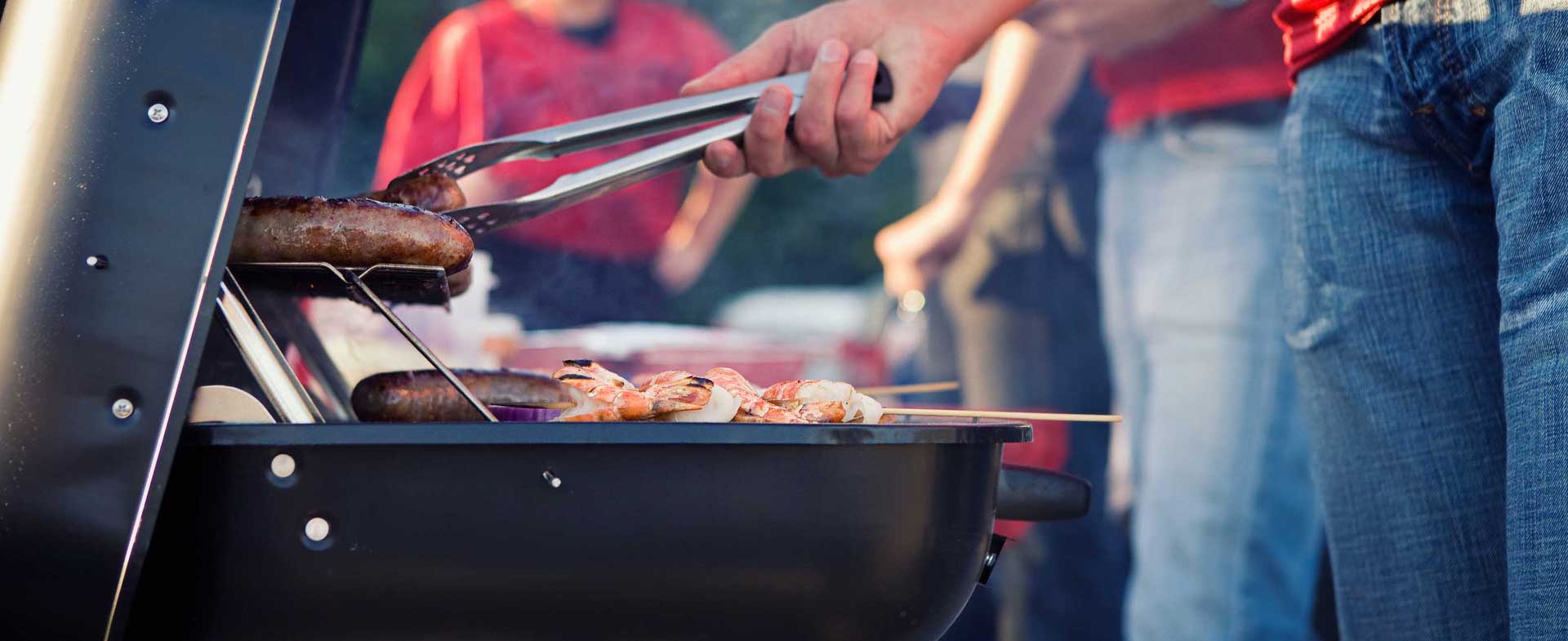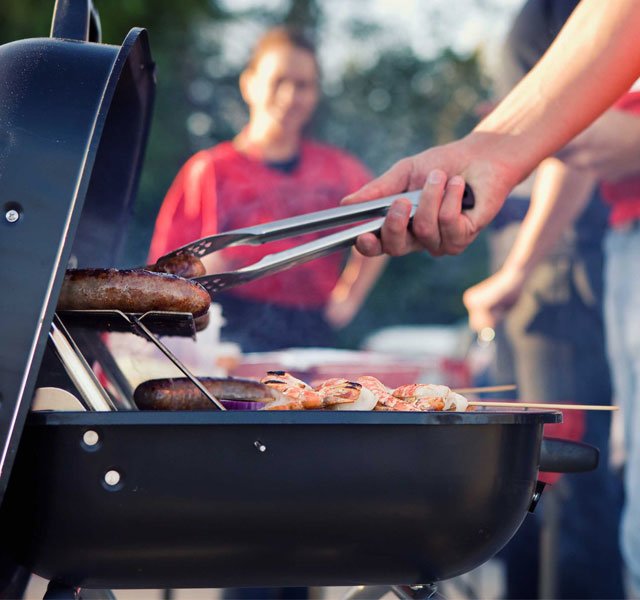Nothing says summer quite like the smell of barbeque. Whether you opt for brats or broccoli, firing up the grill is a fun and convenient way to get dinner on the table fast – and soak up some sunshine (and vitamin D!) at the same time.
The rub: Cooking meat at high temperatures over an open flame to create that great grilled flavor also creates cancer-causing chemicals called heterocyclic amines (HCAs). To add insult to injury, when fat and juices drip into the grill, the flames and smoke that result coat the meat in another cancer-causing chemical called polyaromatic hydrocarbons (PAHs). So it’s almost like dousing your dinner in cigarette smoke.
The good news: You don’t have to give up the grill. You can significantly reduce the number of cancer-causing chemicals you ingest by following these six grilling tips from registered dietitian nutritionist Kelly Nohl.
- Trim the fat. The less fat on your grill, the lower your exposure to harmful chemicals. So lower-fat proteins, such as chicken or turkey, are better options for grilling than fatty meats. Craving a juicy steak? Make sure you trim the fat before letting the meat hit an open flame. You can even cover the grill surface with aluminum foil – or wrap your meat in foil – to prevent fat drippings from hitting flaming coals.
- Choose a marinade. Studies show that bathing food in an acidic marinade or a rub/marinade combination, like the one in this flank steak recipe or in this ginger turmeric chicken recipe, can reduce the number of carcinogens on your plate. “Choose an acid like lemon or lime juice, red wine vinegar or wine in your marinade to help breakdown the meat," Nohl says.
- Consider pre-cooking. If you partially cook a large cut of meat in the oven or microwave before finishing on the grill, you’ll reduce the amount of time it’s exposed to high temperatures – and the number of chemicals that land on the meat. Just make sure to transfer food immediately to the barbeque and ensure meat reaches appropriate temperatures (165 degrees for chicken and turkey and 160 for meat).
- Use a gas grill. “Gas grills allow for better temperature control,” Nohl says. “If you like to use a charcoal grill, just make sure you have a squirt bottle of water on hand to contain the flames if need be.” Whether your grill is gas or charcoal, cook to the side of the flame, not directly on top. For gas grills, light the outer burners only (not the center one) and cook food in the center with the lid closed.
- Don’t char your food. While crisp edges and subtle smoky flavor are tasty, they’re also a sign of harmful chemicals in your meat. Avoid the char marks by grilling food over low heat and flipping frequently.
- Go meat-free. Fruits and vegetables are protein- and fat-free, so water is the only thing dripping into the flames. The end result: Fewer carcinogens and the cancer-fighting antioxidants in plant foods. Make half your plate fruits and vegetables and start experimenting with meat-free grilling alternatives. Portabella mushrooms, cauliflower steaks and veggie skewers are all good options, as are veggie burgers like this black bean quinoa burger recipe.
Despite the link between cancer and barbequed food, no one is suggesting you ditch your grill altogether. Instead, remember the old adage: everything in moderation. Couple that with the precautionary measures above and enjoy a worry-free grilled meal.
It’s also crucial to follow safe food handling practices. Keep your hands clean, use different plates and utensils for raw and cooked foods and separate meat and vegetables. Most important, ensure all meats reach the appropriate internal temperatures by using a food thermometer.
Still concerned about your cancer risk? “Add more fruits and vegetables!” Nohl says. “They are high in antioxidants, so keep your plate full of these cancer fighters along with your meat off the grill."
To find a registered dietitian at Henry Ford, visit henryford.com or call 1-855-434-5483.
Kelly Nohl is a registered dietitian nutritionist for the Henry Ford Center for Health Promotion and Disease Prevention.



